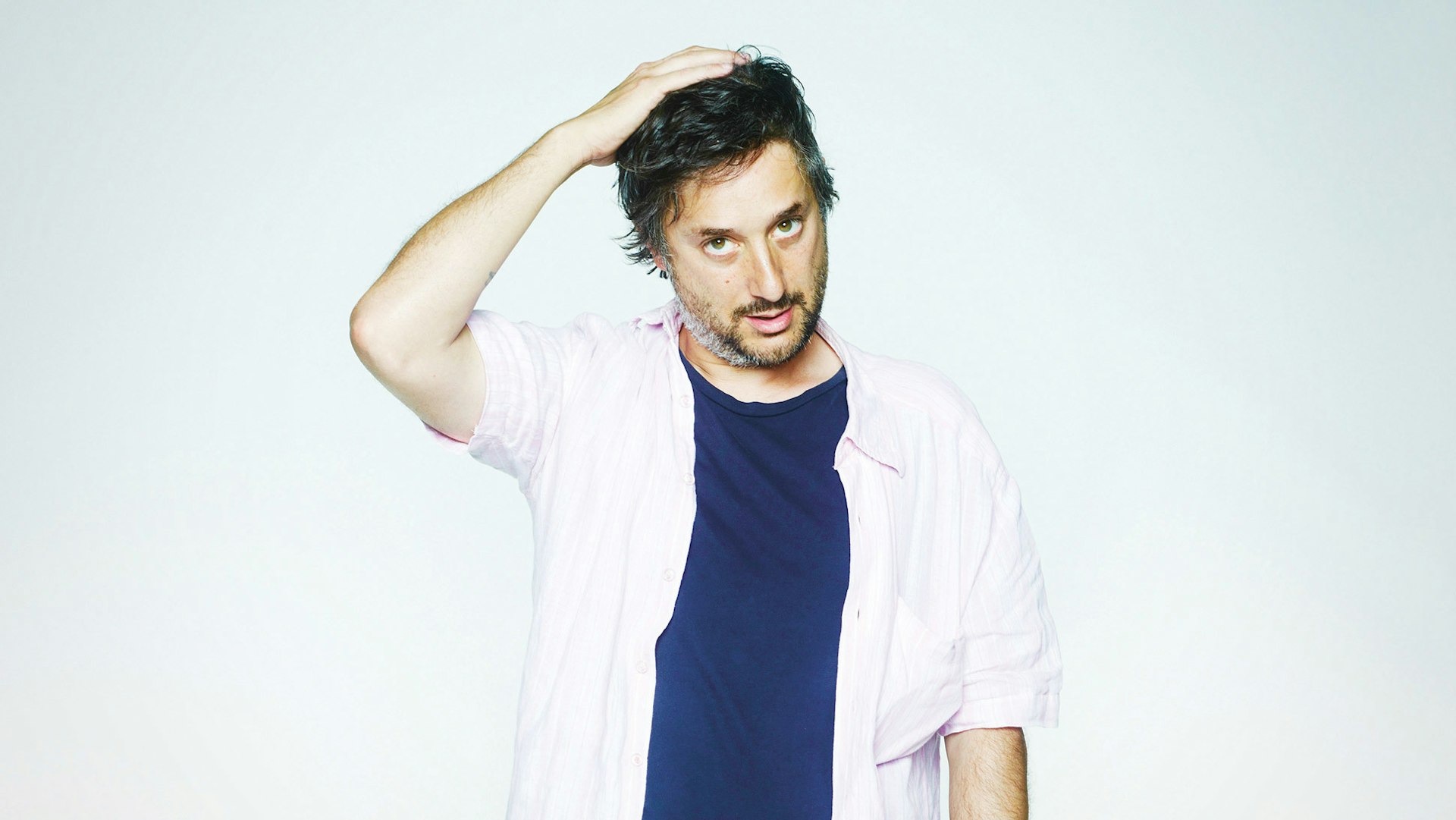
Harmony Korine
- Text by David Jenkins
Ask Harmony Korine, director of Gummo, writer of Kids and archly disobedient renaissance man, from where he gets his ideas, he’ll usually spin you some quaint yarn. Back when his 2007 film, Mister Lonely, came out, he told journalists that he came up with this story of a Scottish commune of celebrity look-a-likes (with a sub-plot involving fatalistic sky-diving nuns) during his time spent among a little-known tribe called the Malingerers who dedicate their entire lives to searching for an elusive golden fish. As someone who cheerfully skirts the margins of the contemporary cinematic firmament, Korine can pretty much play by his own idiosyncratic rules, and it all adds to the cultish, self-governed mythology that enshrouds him. The tall tales of imagined production histories and otherworldly inspirations also dovetail nicely with the provocative and poetic works themselves.
It’s difficult to envision what went down on the set of his latest, and arguably greatest film, Spring Breakers, released in UK cinemas in April. It stars apple-cheeked Disney Club alumni Selena Gomez and Vanessa Hudgens alongside Days Of Our Lives mainstay Ashley Benson, and Harmony’s other half, Rachel Korine. In its simplest terms, it’s the chronicle of four scantily clad, bongwater-soaked highschool tearaways who stick up a roadside burger joint in order to coach down to the Florida Keys so they can be part of that gaudy American rite of passage: spring break. They holler and swear and belt-out Britney Spears songs in desolate parking lots. But soon their unchecked hedonism gets the better of them and they’re carted – in their omnipresent neon bikinis – off to jail. Thankfully James Franco’s Alien – a cornrow’d, silver-toothed rap singer and self-styled mobster – rescues these damsels in distress. He too, it transpires, is a Britney fan.
When Spring Breakers premiered at the Venice Film Festival in September of 2012, it was met with a mixture of disbelief and bemusement: was this Korine’s attempt at a raunchy Hollywood exploitation movie aimed at a mass market and destined for home video infamy, or was he taking us on another incendiary and exhilarating jaunt? All there is to say – and Korine acolytes will probably be way ahead of us here – is that Spring Breakers is perhaps not about what it’s about. While we follow these girls on their increasingly debauched escapade, it becomes increasingly clear via the hypnotic, repetitive editing, the ambient soundtrack care of Skrillex, the ironic gun and drug fetishisation and the peculiarly earnest performances from its central cast that this is more of an ambiguous pop cultural satire than a cautionary tale of teen licentiousness. But that’s not to say that Spring Breakers cannot be enjoyed (immensely) if taken purely at face value as a sexed-up caper.
Spring Breakers is less of a straight crime flick than it is a rigorous, apocalyptic and often hilarious essay on the realities of blind consumerism and conformity, which adopts the iconography of an ostentatious hip-hop promo. But it’s seldom scathing or didactic: on one hand you could read the film as a sickened admonishment of spring break and the apparently vile, amoral cultural baggage that comes with it. You could also take it as a celebration of self-discovery, independence and youth, untethered, unmonitored, eternally bound in mutual ecstasy. It’s a film which suggests that maybe consumerism and conformity can have their plus points. Which is a pretty radical statement to make.
It also appears to perfectly encapsulate Korine’s career to date. While Gummo still astounds with its moments of ramshackle lyricism and Julien Donkey-Boy is masterful as a movie monument to its brain-frazzled protagonist, Spring Breakers feels like Korine’s most purposeful and artfully sculpted work. It occasionally comes across as a big-money remake of his previous feature, the rubber-masked VHS oddity, Trash Humpers, particularly in its focus on the simple pleasures of mindless destruction. Even though most scenes in Spring Breakers are intercut with slo-mo montages of gyrating, tan-lined boobs or phallic fountains of light beer spraying over ecstatic partygoers, there’s a sense that this is carefully choreographed chaos. Korine is no longer relying on the poetic accidents of yore.
What’s most fascinating about Spring Breakers, though, is that it almost tells the story of its own production. Here is a movie about four young, impressionable girls who are eventually corrupted and pushed to the very bounds of their thrill-seeking capacities by a detached and perversely magnetic local celebrity – is that not exactly what Korine is doing to Disney’s finest? The director stated at a press conference that he made this film for the type of audience who grew up with Gomez and Hudgens, but frankly that’s a hard pill to swallow. While the cornfed superstars don’t go so far as to irrevocably taint their clean-cut images for the long haul, there is something undeniably haunting about watching these girls go all-out to fulfil their director’s playfully lewd requirements.
But there’s even more to the film than that. Near the beginning, there’s a short interlude focusing on Selena Gomez’s character whose name is Faith. She’s seen attending a heated Bible discussion which is being overseen by a muscular, tattooed gentleman who resembles a pro wrestler and preaches in a mercurial, emotive parlance that wouldn’t be out of place in the ring. “Hey there Crazy Keith – are you crazy about The Lord?” he bellows, rhetorically. Gomez’s character appears fraught with contending sympathies – would God look kindly upon her knowing descent into Spandex hell?
But Spring Breakers is not so rash or banal as to suggest that youthful, devoutly religious girls get nasty too. The preacher’s fervent manner is echoed later in the film through the constant echo of, “Spring break, bitcheeeeeees!” And later still, when Franco’s Alien offers the girls an ad-hoc itinerary of his automatic weapon collection, he repeats over and over, “Look at ma shit. Look at ma shit. Look at aaaaaall ma shit!” In all tiers of Korine’s world, dialogue has been reduced to lurid slogans. Partying, learning, relaxing, churchgoing and drug-dealing are all activities which can be reduced to aggressive platitudes.
It goes without saying that Spring Breakers is one majorly subversive work that captures a mood, rather than telling a story. A single euphoric moment. One could come away from the film with a sense of pumped-up elation or Universe-ending gloom, such is its careful balancing of the rapture of the party against, well, The Rapture. This may look from the outset as Korine’s bald-faced bid for mainstream acceptance, but it’s anything but that. It’s probably his most surreal, complex and transcendent film yet. And that’s saying something, bitcheeeeees.
